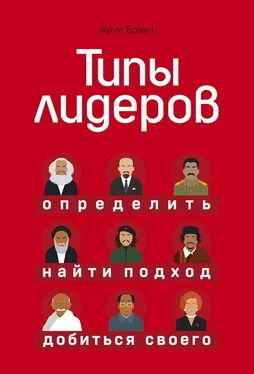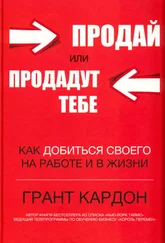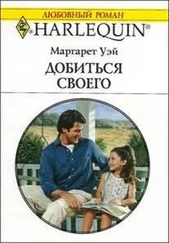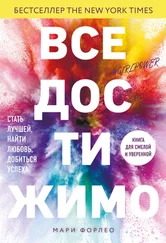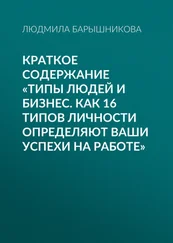Там же, p. 75.
Там же, p. 149.
Ian Kershaw, The End: Hitler’s Germany, 1944–45 (Penguin, London, 2012), p. 13.
Overy, The Dictators , p. 100.
Там же, p. 120.
Adam Smith, The Theory of Moral Sentiments (Clarendon Press, Oxford, 1976), p. 251.
Turgot on Progress, Sociology and Economics , translated and edited by Ronald G. Meek (Cambridge University Press, Cambridge, 1973), p. 76.
David Hume, ‘Of the First Principles of Government’, in Essays and Treatises on Several Subjects Containing Essays Moral, Political and Literary: A New Edition , vol. 1 (Cadell, London, 1788), p. 39.
В любом случае это монополия только внутри страны. Например, коммунистические власти глушили передачи радиостанций «Радио Свобода» и «Радио Свободная Европа», но глушение работало не на всей территории соответствующей страны. Таким образом, контроль тоталитарных и авторитарных государств над распространением информации был неполным еще задолго до того, как внедрение Интернета стало для них источником как серьезных проблем, так и новых возможностей.
Jason Brownlee, Authoritarianism in an Age of Democratization (Cambridge University Press, Cambridge, 2007), pp. 202–205.
William R. Polk, Understanding Iraq (Tauris, London, 2006), p. 109.
Joseph Sassoon, Saddam Hussein’s Ba‘th Party: Inside an Authoritarian Regime (Cambridge University Press, New York, 2012), pp. 130–131.
Там же, pp. 5 и 181.
Там же, p. 5. Книга Сэссуна основана на детальном исследовании документов партии Баас, захваченных американскими оккупационными войсками после вторжения в Ирак в 2003 году.
Paul Collier, The Bottom Billion: Why the Poorest Countries are Failing and What Can Be Done About It (Oxford University Press, Oxford, 2008), p. 49.
Kershaw, Hitler , p. 111.
Там же, p. 201.
Daniel Kahneman, Thinking Fast and Slow (Allen Lane, London, 2011), p. 140.
David Owen, The Hubris Syndrome: Bush, Blair and the Intoxication of Power (Methuen, revised edition, York, 2012), pp. 1–2.
Фрэнсис Фукуяма замечает, что «практически все наиболее успешные авторитарные модернизации происходили в восточноазиатских странах с общим для всех китайским культурным наследием, в том числе в Южной Корее, на Тайване, в Сингапуре и собственно в Китае». См.: Fukuyama, The Origins of Political Order: From Prehuman Times to the French Revolution (Profile, London, 2011), p. 313. В Южной Корее и на Тайване модернизация проходила и после перехода от авторитаризма к демократии.
Цит. по: Ian Kershaw, Hitler (Penguin, London, 2009), p. 473.
Kershaw, Hitler , p. 479.
Там же, pp. 420, 422.
Richard J. Evans, The Third Reich in Power 1933–1939 (Penguin, London, 2006), pp. 692–695.
Kershaw, Hitler , p. 619.
Там же, pp. 157–158.
Там же, pp. 154–155.
Там же, p. 588.
Christopher Duggan, Fascist Voices: An Intimate History of Mussolini’s Italy (Bodley Head, London, 2012), p. 298.
Stanley G. Payne, The Spanish Civil War, the Soviet Union, and Communism (Yale University Press, New Haven, 2004), p. 172.
Archie Brown, The Rise and Fall of Communism (Bodley Head, London, and Ecco, New York, 2009), pp. 91–92.
Сталин получил и проигнорировал более чем достаточное количество предупреждений о неизбежности нападения Германии. См.: Winston S. Churchill, The Second World War, Volume IV: The Hinge of Fate (Cassell, London, 1951), p. 443; John Erickson, The Road to Stalingrad: Stalin’s War with Germany (Weidenfeld & Nicolson, London, 1975), pp. 87–98; and Christopher Andrew and Vasili Mitrokhin, The Mitrokhin Archive: The KGB in Europe and the West (Allen Lane, London, 1999), pp. 122–125.
Andrew and Mitrokhin, The Mitrokhin Archive , p. 124.
См.: The Diary of Georgi Dimitrov 1933–1949 , introduced and edited by Ivo Banac (Yale University Press, New Haven, 2003), pp. 434–441; и Milovan Djilas, Conversations with Stalin (Rupert Hart-Davis, London, 1962), pp. 164–165.
William Stueck, ‘The Korean War’, in Melvyn P. Leffler and Odd Arne Westad (eds.), The Cambridge History of the Cold War, Volume I: Origins (Cambridge University Press, Cambridge, 2010), pp. 266–287, esp. 273–276. См. также: Odd Arne Westad, The Global Cold War (Cambridge University Press, Cambridge, 2005), p. 66.
Stueck, ‘The Korean War’, p. 274.
Письмо Сталина Мао от 4 октября 1950 года, переданное 5 мая 1950 года через советского посла в Пекине. Cold War International History Project Bulletin , No. 14/15, pp. 375–376.
Craig Dietrich, People’s China: A Brief History (Oxford University Press, New York, 3rd ed., 1998); и Jung Chang and Jon Halliday, Mao: The Unknown Story (Vintage, London, 2006), p. 394.
Stueck, ‘The Korean War’, p. 283.
Vladimir O. Pechatnov, ‘The Soviet Union and the World, 1944–1953’, in Leffler and Westad, The Cambridge History of the Cold War, volume 1: Origins , pp. 90–111, at pp. 109–110.
Lorenz M. Lüthi, The Sino-Soviet Split: Cold War in the Communist World (Princeton University Press, Princeton, 2008), p. 77.
Читать дальше
Конец ознакомительного отрывка
Купить книгу
